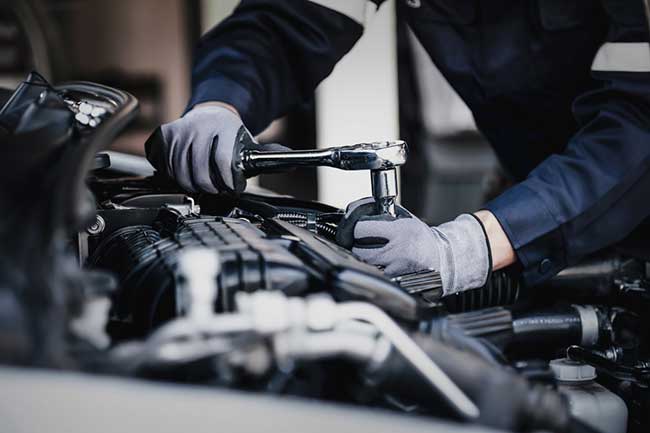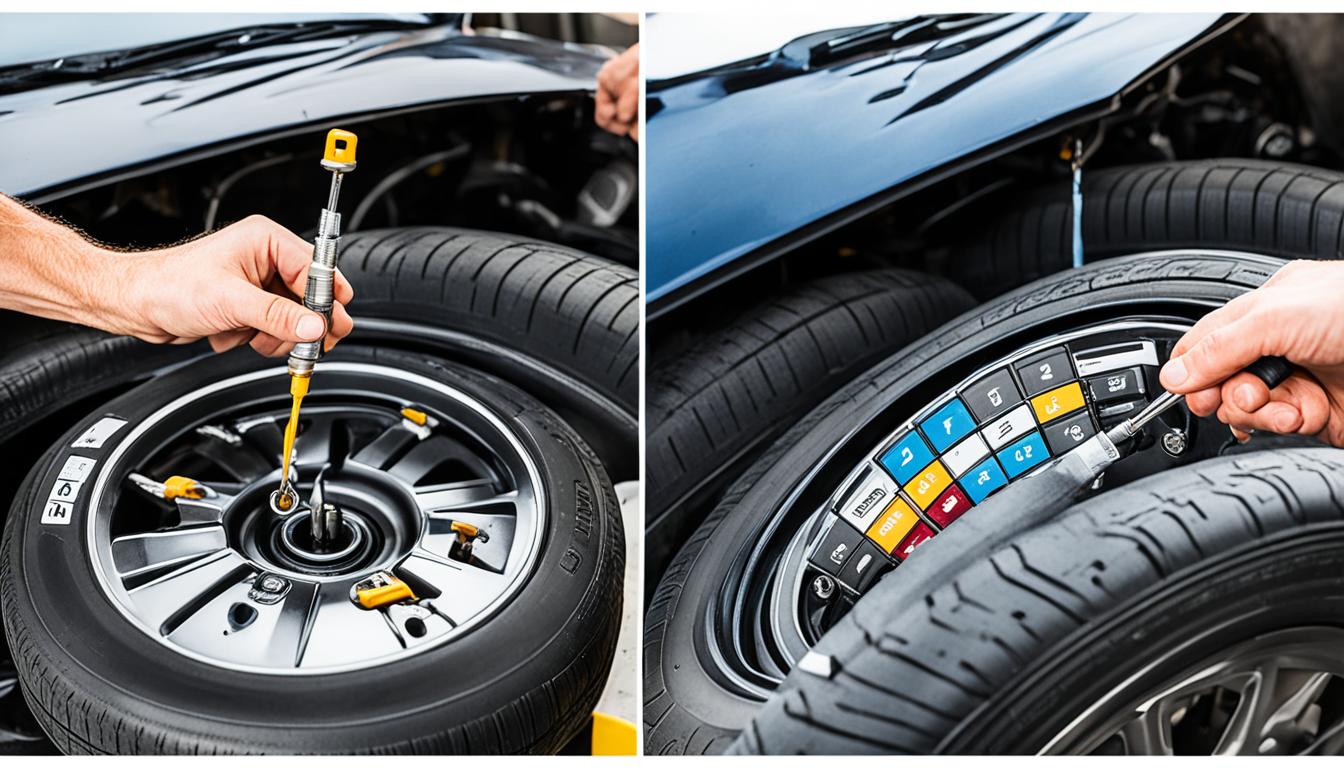All Categories
Featured
Responsible for synchronizing the turning of the crankshaft and camshaft, the timing belt guarantees the engine's valves close and open at the right times throughout the combustion process. If the timing belt stops working, it can result in extreme engine damage.
What Is a Timing Belt? The timing belt is a long, toothed rubber or composite belt that links the crankshaft to the camshaft(s) in an internal combustion engine. Its work is to maintain the engine's valves and pistons in sync, ensuring the engine runs efficiently. The timing belt additionally manages other essential engine features like the water pump and the power steering pump, relying on the automobile.
![]()
Without the proper timing, the engine's pistons and valves can clash, leading to costly and considerable damage. Consequently, changing the timing belt on schedule is just one of the most effective ways to ensure your engine operates at its best and stop expensive repair services.
Why Timing Belt Substitute Issues. Protecting Against Catastrophic Engine Damage: The most substantial risk of not replacing a used timing belt is engine failing. Changing the timing belt at the suggested intervals is the best way to protect against such disastrous damages, saving you from the stress and anxiety and high expense of engine repair work or substitute.
![]()
Preserving Engine Efficiency: A timing belt that remains in excellent problem makes certain that all engine parts operate in best harmony. If the timing belt is used or stretched, it can cause the engine to shed power, experience harsh idling, or struggle to begin. By replacing the timing belt regularly, you can maintain your engine going for peak effectiveness, which assists keep optimal fuel economic situation and efficiency.
Staying Clear Of Unforeseen Break downs: A broken timing belt can trigger your engine to stop suddenly, possibly leaving you stranded in the middle of a journey. By changing your timing belt on schedule, you lessen the danger of unexpected breakdowns that can leave you in a dangerous or troublesome situation. Routine maintenance decreases the opportunities of experiencing these type of interruptions, helping you remain on the road longer without stressing concerning your engine failing.
Affordable Maintenance: Timing belt replacement is a lot cheaper than repairing or replacing an engine that's been damaged because of a timing belt failure. While the price of changing the timing belt may differ depending upon your car and its area, it is far extra affordable than the costs related to major engine repairs or substitutes. Changing your timing belt at the recommended periods can conserve you a substantial quantity of cash over the long term by preventing damage to your engine.
When Should You Replace Your Timing Belt? The timing belt doesn't last for life, and a lot of makers suggest changing it in between 60,000 and 100,000 miles. The exact timing depends on your car's make, version, and driving conditions, so it's vital to examine your owner's manual for particular guidance.
Signs that your timing belt may need interest consist of unusual engine sounds (such as a high-pitched whining or ticking noise), difficulty beginning the engine, or a decline in engine performance. If you notice any of these signs, it's critical to have the timing belt inspected by an expert auto mechanic.
![]()
Verdict. The timing belt is a tiny but crucial element of your engine, and routine substitute is essential to maintaining your automobile's performance and protecting against pricey damages. By remaining on top of timing belt upkeep, you'll ensure your engine operates successfully, avoid unanticipated malfunctions, and safeguard your cars and truck from major repairs. Watch on your vehicle's advised timing belt substitute routine, and constantly seek advice from with a trusted auto mechanic to keep your engine running efficiently for years to come.
What Is a Timing Belt? The timing belt is a long, toothed rubber or composite belt that links the crankshaft to the camshaft(s) in an internal combustion engine. Its work is to maintain the engine's valves and pistons in sync, ensuring the engine runs efficiently. The timing belt additionally manages other essential engine features like the water pump and the power steering pump, relying on the automobile.

Without the proper timing, the engine's pistons and valves can clash, leading to costly and considerable damage. Consequently, changing the timing belt on schedule is just one of the most effective ways to ensure your engine operates at its best and stop expensive repair services.
Why Timing Belt Substitute Issues. Protecting Against Catastrophic Engine Damage: The most substantial risk of not replacing a used timing belt is engine failing. Changing the timing belt at the suggested intervals is the best way to protect against such disastrous damages, saving you from the stress and anxiety and high expense of engine repair work or substitute.

Preserving Engine Efficiency: A timing belt that remains in excellent problem makes certain that all engine parts operate in best harmony. If the timing belt is used or stretched, it can cause the engine to shed power, experience harsh idling, or struggle to begin. By replacing the timing belt regularly, you can maintain your engine going for peak effectiveness, which assists keep optimal fuel economic situation and efficiency.
Staying Clear Of Unforeseen Break downs: A broken timing belt can trigger your engine to stop suddenly, possibly leaving you stranded in the middle of a journey. By changing your timing belt on schedule, you lessen the danger of unexpected breakdowns that can leave you in a dangerous or troublesome situation. Routine maintenance decreases the opportunities of experiencing these type of interruptions, helping you remain on the road longer without stressing concerning your engine failing.
Affordable Maintenance: Timing belt replacement is a lot cheaper than repairing or replacing an engine that's been damaged because of a timing belt failure. While the price of changing the timing belt may differ depending upon your car and its area, it is far extra affordable than the costs related to major engine repairs or substitutes. Changing your timing belt at the recommended periods can conserve you a substantial quantity of cash over the long term by preventing damage to your engine.
When Should You Replace Your Timing Belt? The timing belt doesn't last for life, and a lot of makers suggest changing it in between 60,000 and 100,000 miles. The exact timing depends on your car's make, version, and driving conditions, so it's vital to examine your owner's manual for particular guidance.
Signs that your timing belt may need interest consist of unusual engine sounds (such as a high-pitched whining or ticking noise), difficulty beginning the engine, or a decline in engine performance. If you notice any of these signs, it's critical to have the timing belt inspected by an expert auto mechanic.

Verdict. The timing belt is a tiny but crucial element of your engine, and routine substitute is essential to maintaining your automobile's performance and protecting against pricey damages. By remaining on top of timing belt upkeep, you'll ensure your engine operates successfully, avoid unanticipated malfunctions, and safeguard your cars and truck from major repairs. Watch on your vehicle's advised timing belt substitute routine, and constantly seek advice from with a trusted auto mechanic to keep your engine running efficiently for years to come.
Latest Posts
Learn About Leading Vehicle Maintenance Services at Montclare Auto Repair – Quality Service Today
Published en
1 min read
Why Chicago Drivers Trust Montclare Auto Repair for Reliable Service and Significant Savings
Published en
1 min read
Check Out Affordable Auto Repairs with Montclare’s Exclusive Service Specials
Published en
1 min read
More
Latest Posts
Learn About Leading Vehicle Maintenance Services at Montclare Auto Repair – Quality Service Today
Published May 31, 25
1 min read
Why Chicago Drivers Trust Montclare Auto Repair for Reliable Service and Significant Savings
Published May 26, 25
1 min read
Check Out Affordable Auto Repairs with Montclare’s Exclusive Service Specials
Published May 25, 25
1 min read